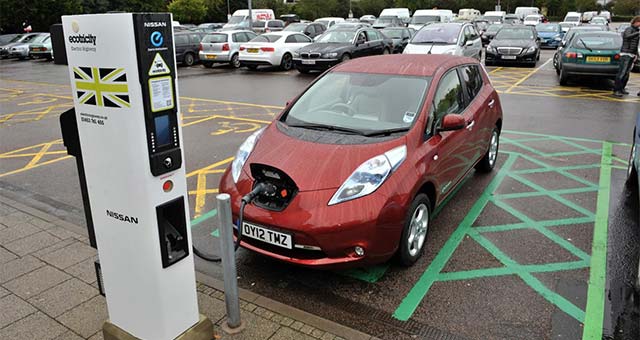Just 50 ultra-rapid charger locations placed strategically across the country would be enough to ‘fix’ range anxiety and could be delivered for as little as £0.60 a car per year, according to National Grid’s electric vehicles lead.
Graeme Cooper was speaking at a 3D Energy event in central London last week where he revealed that the transmission system operator had mapped England and Wales’ highways and motorways, traffic density and population to find the optimum locations for a potential network of 350kW chargers.
“We crunched a lot of data and concluded for at least England and Wales we can fix range anxiety with 50 strategic locations for these ultra-rapid chargers. To an extent [this] means that 96% of UK drivers would be able to drive in any direction from any location in the UK and be within 50 miles from an ultra-rapid super charger,” he said, adding that a similar plan was to be submitted to the Scottish government.
Range anxiety has long been considered one of the major obstacles to increased take-up of EVs, with a third of drivers recently found to believe an electric vehicle won’t be able to handle the amount of miles they travel in their current vehicles.
Despite home charging offering a new shift in ‘refuelling’ by bypassing the need to travel to a petrol station, many still consider there to be a need for forecourt style charging for EVs.
“There is not one magic bullet to fixing all things to all people but if you want to get somewhere near the comfort where you can just get in an electric car and go and not have any concern about planning for charging, this may be an answer, not necessarily the answer,” Copper added.
National Grid has in the past suggested the establishment of super-fast charging forecourts up and down the country to replace the nation’s fleet of petrol stations could be the best option, despite the considerable demand required of a bank of 350kW chargers.
These ‘ultra-rapid chargers’ could refuel a standard EV battery within four minutes and a 90kWh battery within 12 minutes, but a forecourt of nine pumps would require the infrastructure capable of handling 3.1MW of supply and a direct connection above 240V.
This would likely require significant grid reinforcement if rolled out nationwide however Cooper explained that the price tag may not be as high as many fear when spread across the country’s road users.
“It’s anywhere between half a billion to a billion pounds to fix this. That feels like quite a big number to some and not a very big number to others, and that is only the infrastructure not the charging units.
“To give you an interesting metric, if you take somewhere in the middle of that range and then smear that across car drivers today, that works out to be about £0.60 a car a year. So fixing range anxiety for [that] doesn’t feel like a big deal for me,” he explained.
Cooper added that these connections could also be futureproofed to meet the needs of increasing battery capacities in cars and would therefore “fix everything up to fully electric HGVs in time”.





